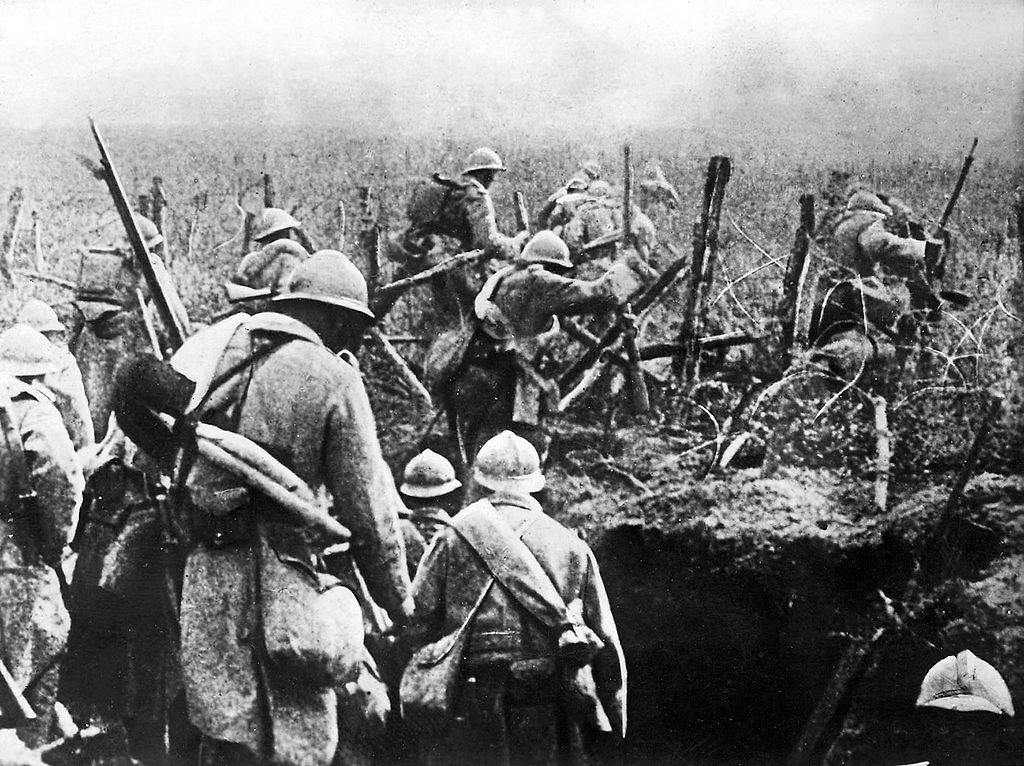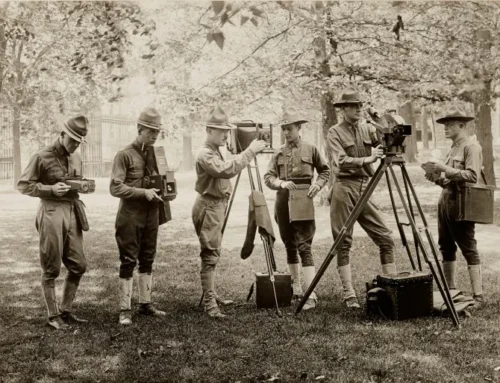Off-Ramps to Nowhere
Published: 3 March 2025
By Stephen Green
via the PJ Media website

Bataille_de_Verdun_1916
World War I was the war that broke Europe. The Russo-Ukraine War has broken the American public’s patience with Ukraine President Volodymyr Zelensky, and maybe even with NATO — and, like WWI three years in, there’s still no end in sight.
The parallels are disturbing.
Europe’s soldiers marched toward each other in August 1914, confident of victory in weeks or months at the very longest. Germany’s Schlieffen Plan (not really a plan at all) called for the capture of Paris in six weeks, followed by a redeployment to the East to defeat Imperial Russia.
Paris never did fall, and it only took months for the Western Front to settle into a bloody stalemate that would last for years.
By 1916, the slaughter was almost too much to bear, and Germany quietly sent out peace feelers. Nothing came of them, in no small part because Berlin’s view of “peace” was keeping most of what they’d already taken. Had Kaiser Wilhelm II the imagination to see what was already at risk, he’d have been much more serious about peace.
The classic sunk-cost fallacy applies to wars, too. So much blood had been spilled, so much treasure spent — and so little gained — that neither side believed it could afford anything less than total victory. So the war dragged on until enough American troops began arriving in early 1918 to settle affairs on the Western Front.
And Another Thing: For a full treatment of the last months of fighting on the Western Front, I highly recommend Nick Loyd’s “Hundred Days: The Campaign That Ended World War I.” It underscores both the American contribution to victory and just how thoroughly beaten Imperial Germany was in the field. Anyone who still entertains antisemitic “stab in the back” notions about the Allied victory needs to read this one.
Imperial-sized egos were on the line, too, further complicating finding a tolerable peace.
In the end, Britain and France got off comparatively lightly. They “merely” lost over two million soldiers between them, and a loss of national confidence from which neither country has recovered. Imperial Germany, the Austro-Hungarian Empire, the Ottoman Empire, and Imperial Russia all ceased to exist.
There were no winners. What the Brits call “sheer bloody-mindedness” and the sunk-cost fallacy ensured that nobody would find an off-ramp from the fighting. Even President Woodrow Wilson’s “peace without victory” plan was rejected in early 1917, long after it was clear there would be no victors, regardless.
All the European parties involved dismissed the spiraling risks of Total War and paid the price.
There was a time for Germany to abandon its maximalist war aims of establishing hegemony over Europe, and it was long before the Kaiser fled to exile in the Netherlands. There was a time for France to give up reconquering Alsace-Lorraine, and that time was before the millionth soldier died and the country suffered permanent psychic scars.
We entrust our political and military leadership with the power to make life-or-death decisions, but it’s amazing how glib they are about that terrible responsibility — or rather, it would be if they didn’t fail so regularly to show any kind of restraint or wisdom.
A few classic examples.
→ Read the entire article on the PJ Media website here:
External Web Site Notice: This page contains information directly presented from an external source. The terms and conditions of this page may not be the same as those of this website. Click here to read the full disclaimer notice for external web sites. Thank you.



